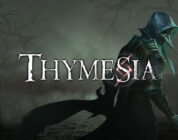Elden Ring is the latest RPG game to drop from developer FromSoftware, published by Bandai Namco. Elden Ring is massive, filled with content, and there’s too much to discuss for a review. Also odds are you’ve already heard a fair bit about the game and its systems. This won’t be a typical review per se; instead, we’ll be taking a deeper look at certain aspects of the game and discovering who the game is for. After 150 hours in my first playthrough, I can safely say I adored this game and believe it to be a stand out gem. But opinions are subjective, so in this article, the game aspects will be dismantled, pros and cons are given for each, and hopefully you’ll get a new perspective you haven’t considered before.
For the purposes of streamlining the content of the article, I’ll assume you’ve not played Elden Ring, but have seen bits and pieces and played at least one other FromSoftware game. ‘Would I enjoy Elden Ring?’ This should help you make up your mind.

Story
The story of Elden Ring is far clearer to understand than previous FromSoftware games, with the exception of Sekiro. You are a tarnished, a nobody who’s been given a chance by forces beyond comprehension to rise up and repair the Elden Ring, the embodiment of the power of the lands between, becoming Elden Lord. The story has twists and turns of course like all Soulsborne games, with a heavy emphasis on certain questlines making you doubt whether what you’re doing is right or wrong.
The ‘factions’ that you choose to help or hinder can greatly alter the ending, but in terms of uncovering the lore of the land, your understanding is never enlightened like in previous games. The main points of the story are laid bare in the opening cutscene of the game and after that, you can learn some interesting history and how certain things came to be, but nothing ever gripped me in a realisation like the previous souls-like titles.
In Bloodborne and Dark Souls, the more knowledge and history you learn the more you take on a moral dilemma. In Bloodborne, you discover your ties to blood usage to combat beasthood are paradoxical as all hunters succumb to beasthood eventually due to it, but some believe blood use is the key to humanity’s ascension, instead of the accumulation of Eldritch knowledge. This moral dilemma comes to a head when you are faced with the guilt and regret of Lady Maria for murdering a great one, and you ask if the hunters were truly protectors or butcherers of things they simply feared in the hopes they could rise above them.
In Dark Souls you are told the fire needs linking to usher in a new age as the world is crumbling and without fire, all will wither. This is revealed to be a half-truth, as the age of fire must end to usher in an age of dark, something the gods feared above all else. So you have a choice, do you usher in the new age of dark for mankind, or do you ensure that the age of fire ticks on a little while longer to keep the world alive? It’s an interesting choice to make, even if it’s binary.
Elden Ring doesn’t present you with a revelation or circumstance to make you truly question your actions or motives. There are multiple endings that see you betraying your initial goal and deviating from your ‘destiny’ to become Elden Lord, but there’s a point in the game’s narrative where you circumvent your destiny either way, so what are you really achieving in making a choice here? The lore as always is fascinating and rich as we come to expect from a FromSoftware game, but the decisions you make in Elden ring feel like they carry less weight than in previous games ultimately.

Gameplay
There are so many mechanics and facets to the gameplay of Elden Ring and it would be patronizing to address them all. So instead I’ll present the main points that I feel personally could use some examination, but also some points from the community and the opinions I’ve seen scattered around.
Core Gameplay/Combat
The open world of Elden Ring is huge, with so much to explore and discover on your way through it. The combat is refined to a point, and there really is no contention about it. You either love Soulslike combat or you don’t, but there’s a deeper layer to Elden Ring’s enjoyment. In previous souls like games, it was a more linear world than initially first thought. Shortcuts and multiple routes included, there was still a clear progression to your levelling and the combat. Due to the full non-linear gameplay of Elden Ring, it’s easy to find yourself in a place where, combined with FromSoftwares reputation for difficult, skill-based gameplay, you’re unsure if you’re underpowered for an area or just need to grind it out.
If you’re the kind of person who can recognise you’ve hit a wall and will go away to train and get better weapons, Elden Ring will be an immensely satisfying experience in tactical decisions to choose when you take your battles. If you are the kind of person, like I was at times, to slog away at one boss in stubborn rage, Elden Ring might be an exercise in frustration more than satisfaction. This would then rubberband, meaning other areas become laughably easy with pitiful rewards to the gear you now have. The Caelid Wilds are a great example, as they can be accessed easily from Limgrave relatively early on but to unprepared players presents a fundamental question; ‘Is this hard because I don’t know what I’m doing, or because I shouldn’t be here yet?’ if you can accurately judge that answer for yourself, Elden Ring is right up your street.
Questlines
The sidequests for Elden Ring are in typical FromSoftware style, relying on trying to extrapolate past information you’re readily given and asking yourself “Well, where will this character go/what would they do/why would they want that now?” in order to organically find your way forward. However, this is juxtapositioned sometimes by simply progressing and stumbling upon them later. Summarized, the questlines are 50% detective work/50% utterly random chance that you’ll see their end.
Is this satisfying though? Yes and no. For the first fifty hours of the game, the satisfaction I found in organically finding NPCs and progressing their stories was phenomenal. Every time I tried to track an NPC’s path through the world to find them somewhere I guessed they might be, every time I solved a clue to where an NPC’s ‘McGuffin of the week’ was, seemed phenomenal. SPOILERS AHEAD, SKIP TO NEXT PARAGRAPH TO AVOID The most satisfying one was the completion of the Raya Lucaria junior scholar questline. After finding my own key I knew the only place a second one would logically be would be inside the academy itself. I searched high and low, found it on a corpse in a rafter, and returned it to him. This gave me an emote; which links to a tower later in the game.
The satisfaction I felt from organically linking different items and areas with their contexts and lore was so satisfying, when constructed correctly you get such genuine eureka moments that no other game has given me. It’s a sandbox of clues and plot threads to solve and discover. Some people believe Elden Ring should have a quest log of some kind to keep track but I disagree, as it mitigates the good aspects of this system like listening to dialogue intently and being alert to subtle cues and hints. The game rewards diligence, something that ultimately makes you feel smarter when you get it right. If you’re the kind of person who gets a thrill from solving things without your hand being held, Elden Ring gives it in spades; for the first half of the game at least.
After that, however, things take a turn. The game moves away from questlines with logical outcomes rewarding knowledge and thinking, to arbitrary exploration into areas you’ve sometimes already been, sometimes even just needing to rest at a site of grace to reload the area and progress a questline. This is unbelievably frustrating; it feels like two design philosophies are being mixed together.
If the purpose is for the community to come together to complete things as a collective, then why is this not a system within the game? Yes, you can leave messages, which definitely helped me with the smaller puzzles like the towers. But the extended questlines have no system to share necessary knowledge with other players in-game; for a game all about exploration and logically discovering new content, the idea that to see all of it you’ll need an open wiki page on a phone is so disappointing.
This has been a long section but ultimately regardless of your love or hate for figuring things out organically, without dedicating your life to the game for the next year you’ll never find everything without the help of the internet. If that sours you to Elden Ring, think twice before grabbing it, at full price at least.
Ash of War
If you’re not familiar with the Ash of War system within Elden Ring, essentially they’re ‘special’ combat moves that can be swapped/applied to your choice of weapon, with some limitations to which ones can be applied to which weapons. These are often found by defeating enemies or the teardrop scarabs. The strongest Ashes of War come from defeating major enemies or enemies significant to questlines, but a few of the useful ones are again found arbitrarily in the world.
Elden Ring is different to previous FromSoftware games where a weapon’s special attacks can make for a huge change in combat, whereas in DS3 it was more of a novelty, with base weapon damage/buffs being far more effective. This change in Elden Ring has led to a much wider array of styles and builds, but this also brings another interesting problem.
With some of the Ashes of War being vastly better than the others, it’s interesting that the best ‘equipment’ isn’t locked behind harder bosses or later game sections but instead to certain beetles you encounter in a bush somewhere or a sidequest that was completely unassuming. It’s an interesting decision to have powerful moves and content locked behind your capacity to explore thoroughly, whereas this should feel more like either heavily directed content or these side missions should offer very situationally dependent rewards instead.
The fact that two people can have entirely different capacities to complete parts of the game based on whether one decided to help Kenneth Haight or not is an interesting choice, and even if acquired some of the Ashes of War seem unassuming until tested. I know for a fact I would have spent much longer on the game were it not for finding the blood slash Ash of War, and even then it was recommended by a friend who’d looked up the meta at the time. After numerous patches however, we can only hope the balance between builds overall has improved.

Graphics
It’s immediately apparent that Elden Ring whilst beautiful is not the most graphically advanced game. The re-release of Demon Souls for PS5 set a standard few were expecting. Elden Ring has shown however that imagination and variety are what people truly strive for in next-gen releases, plus it maintains all the majesty and dread of the previous FromSoftware titles in its aesthetics and themes. Are the graphics of Elden Ring dated? Objectively yes compared to PS5 Demon Souls. However, if the graphical quality was a major issue for you then the rest of this article is honestly irrelevant.
Despite the sheer variety and creativity of the enemies in the game, it’s apparent to fans of previous titles that there is a decent amount of assets being reused or altered, such as the giant crabs for example. Some fans have expressed that this makes aspects of the game feel unimaginative or lazy, but I’d argue this can’t be looked at subjectively as a matter of taste. This is a result of the sheer scale and ambitiousness of Elden Ring and the necessary shortcuts or padding needed to fill out the game world. Ultimately, I saw enough variety and difference in the content of Elden Ring to feel that the re-used assets were more nods to previous works, not derivative filler. That’s an issue that you need to decide for yourself.

Conclusion – Would I enjoy Elden Ring?
The overwhelming majority of people would tell you yes. It’s a phenomenally designed and executed game, probably one of the richest open-world experiences to date and even in its later sections maintains a steady stream of content and challenges to keep pace. The question of whether you would enjoy it or not relies on several key points though:
- Do you enjoy organic exploration and figuring things out for yourself with minimal guidance, not just mechanically but narratively?
- Do you have the time to invest in Elden Ring without becoming impatient and frustrated that solutions don’t present themselves immediately/first try?
- Can you know when to leave one part of the game to focus on something else and come back later?
- Can you put your pride aside and look up how to progress/where to get better gear if you hit a brick wall, especially for sidequests/endgame content?
If you answered yes to all these questions and were a big fan of previous FromSoftware games, Elden Ring might be the single greatest game you haven’t played yet. If they sound frustrating or tedious to you, then think twice before grabbing Elden Ring.
If you enjoyed this article, why not check some of our other ones?
- Combat, action, puzzler – Flat Kingdom Paper Cut Edition – out today
- Best Video Game Movie Casting Choices of All Time
- Conway: Disappearance at Dahlia View launches November 2nd on PC & consoles
- Is Visage Scary? – A dissection of what makes a horror game terrifying
- Visage PC Review – The past is never far behind







